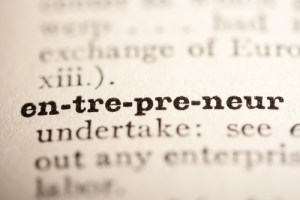3 Things That Will Keep Canada’s Startup Ecosystem Growing



There’s no question that Canada is producing a slew of startup success stories. Entrepreneurs here have created innovative products and services to revolutionize analytics, wearable computing and the way businesses use video, among many other examples. Yet there’s also no question that Canadian startups and entrepreneurs need to work to cultivate an environment for long-term growth.
There’s no question that Canada is producing a slew of startup success stories. Entrepreneurs here have created innovative products and services to revolutionize analytics, wearable computing and the way businesses use video, among many other examples. Yet there’s also no question that Canadian startups and entrepreneurs need to work to cultivate an environment for long-term growth.
Last month, an organization known as Compass (formerly Startup Genome), published a ranking of the top 20 startup systems in the world. The rankings are based on an analysis of five major components, including performance, funding, talent, market reach, and startup experience of entrepreneurs around the world.
The good news? Canada is home to three of the startup ecosystems in the Compass rankings. The bad news? Our position on those rankings is taking a precipitous drop.
The startup ecosystems which made the biggest falls are Vancouver, Toronto, Sydney, and Seattle. Vancouver slipped out of the top 10 from position #9 to #18, Toronto slid from #8 down to #17 . . . Again, all of these ecosystems did grow in the past three years, but not as fast as other environments, which puts them at risk of eventually being left behind.
Canadian entrepreneurs shouldn’t be discouraged by these rankings though. There are three things they can do to help create environments where startups can grow:
Build and Foster Collaboration
Writing on TechCrunch, the co-founder of Vancouver incubator Launch Academy noted that the data from organizations such as Compass is a reminder of how interconnected—and interdependent—the various stakeholders in a startup community must be. Entrepreneurs can help play a role in building and fostering this collaboration.
“We need angels/VCs to back more homegrown companies. We need universities to stay current with their curriculum and prepare students for the job market today,” he writes. “We need government to fund grassroots initiatives and events that bring entrepreneurs together. We need corporations to offer startup-friendly services. We need key individuals and thought leaders to make a commitment to build our ecosystem together.”
An International Outlook
The Compass report noted that 37 per cent of all funding rounds in the top 20 ecosystems have at least one investor from another ecosystem. In North America this is 41 per cent. In other words, startups are much like many other businesses in their need to act local, but think global.
This is one of the driving forces behind the Startup Summit hosted by Salesforce at our Dreamforce conference next month in San Francisco. Attendees will have an opportunity to meet face-to-face with dozens of venture capitalists, experienced entrepreneurs and other experts from around the world. These kinds of events are critical in providing Canadian startups with perspective beyond their own borders.
Focus On Unmeet Needs
Silicon Valley still captures 30-50 per cent of the total “exit pie,” or the value of a startup which gets bought by another firm, the Compass report concluded. That means it may be critical for entrepreneurs to pursue areas where there are fewer established firms but still plenty of market potential.
A recent article in the Globe and Mail suggested the same thing. “We also need to give up on trying to chase down the software successes of Silicon Valley. Just give up–it’s not going happen,” the article said. “This is not to discredit software opportunities; there are going to be many new innovations and successes there. But the end goal should be about making Canada the centre of gravity for another ecosystem.”
Some of these areas could include hardware such as enterprise wearables, nanotechnology, machine learning or many other disciplines.
These are still early days for Canada’s startup ecosystems. The better entrepreneurs understand the current landscape and what they can do to help grow their respective ecosystems, the better they’ll be able to chart a journey for long-term success.
Want to learn how your startup can think big, grow and give back? Don’t miss Salesforce’s Startup Summit, running September 15-16 in San Francisco. The Startup Summit is a two-day event just for startups that runs parallel with Dreamforce, the largest software event ever. With sessions focused on both practical knowledge and thought leadership, the Startup Summit is all about entrepreneurship, energy and inspiration.






















